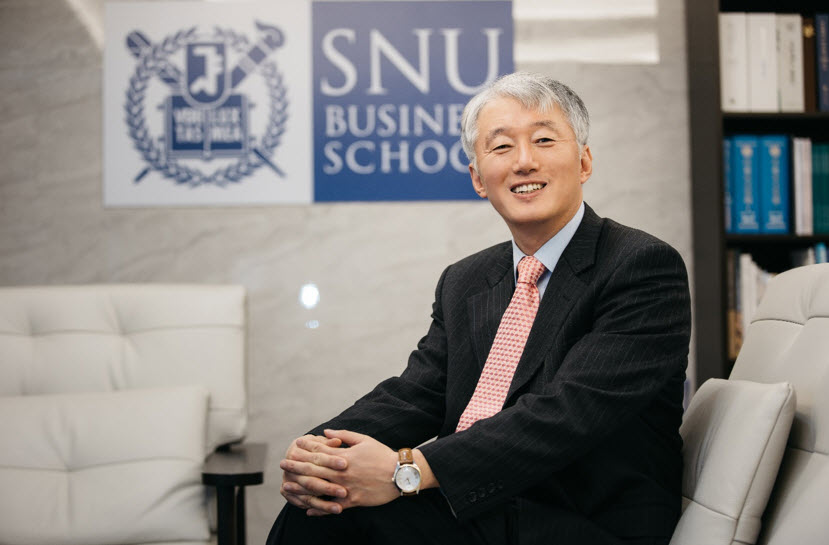Professor Jong-Hag Choi (Department of Business Administration) who specializes in accounting information and management decision making is well-known for deftly combining theoretical and practical topics in class. He leads insightful discussions using real-life business cases and employs effective communication methods. He also contributes to making a better research environment for graduate school students by operating and developing the current MBA program.
To commemorate his achievement, the English Editors team reached out to him to learn more about his research and teaching philosophy. The following is an edited transcript of the interview.

Professor Jong-Hag Choi (Department of Business Administration), Recipient of the 2020 Excellence in Teaching Award
This year, you were awarded the Excellence in Teaching Award! Congratulations! SNU awards 10 professors each year for their passionate and creative methods of teaching that have raised the standards of university education. Can you tell us how you felt upon receiving it?
My attitude towards teaching has been shaped by my retired academic adviser, who genuinely loved his students and always worked hard to provide his students with as much valuable insights as possible. Although I always try to be of help to my students like he did, I don’t think I’ve quite reached that level yet. I think SNU gave me this big award to encourage me to work harder.
I’ve heard that your academic interests are auditing and corporate governance. Can you give us a brief introduction to your research?
The world that we live in today is inseparable from the many varieties of corporate activity. The growth of corporations has led to the birth of capitalism, and as a result, we have experienced an improvement in the quality of our lives like never before. Since the operation of a corporation is a collaborative effort on the part of many individuals, there needs to be in place structures for reasonable governance as well as an effective audit system – our legal system and The Board of Audit and Inspection are good examples of these. My research focuses on these systems.
You are known for your creative and effective teaching methods. Can you tell us a little more about your pedagogical strategies?
I don’t just teach old theoretical frameworks that appear in textbooks; I use those frameworks as a tool to analyze current corporate issues. Even now, there are a myriad of things happening to corporations around the world, and students prefer dealing with those current issues. Also, solving current problems is the best way to learn how to incorporate the theoretical frameworks into real-life business situations.
In class, I ask the students to each fill out an individual card with their personal information. I use those cards to understand and communicate with each student better. I also encourage students to freely share their thoughts and questions and try to offer as much feedback as I can.
I also continuously communicate with my students outside of the classroom in order to figure out what they need, and I try to offer educational or administrative service accordingly. I believe that students, not the professors or staff, are the true customers of SNU.
What are your goals as an educator and a researcher?
In my field, I believe the research capability of SNU has already become world-class. Some of our PhD recipients have been offered academic positions at top universities around the world. If we as professors work harder, I believe SNU can really become not just world-class, but the best in the world.
Lastly, could you give some advice to our students?
Many people say that SNU students tend to excel academically but lack interpersonal skills. Our students should learn how to demonstrate leadership through working with others. I hope our students will grow to become great leaders in society.
Written by Chaehyun Kim, SNU English Editor, michelle25@snu.ac.kr
Reviewed by Professor Travis Smith, Department of Asian Languages and Civilizations, tlsmith@snu.ac.kr

